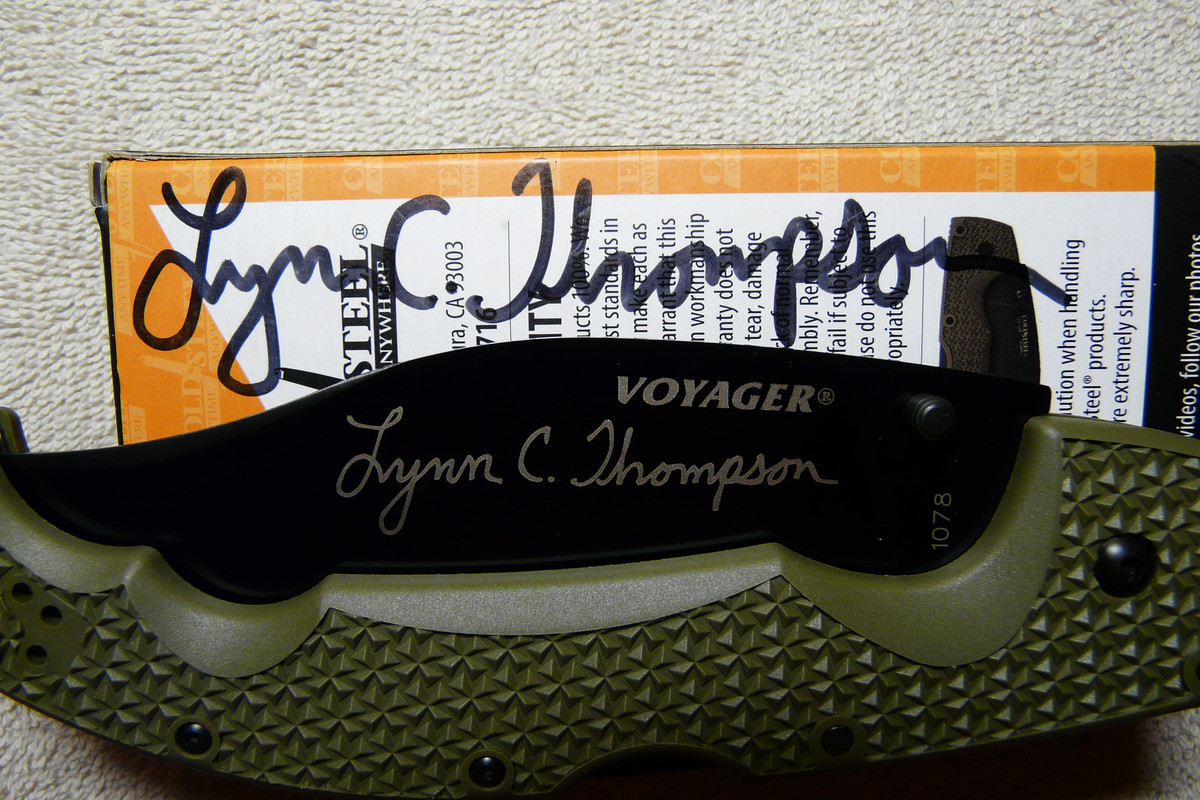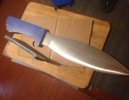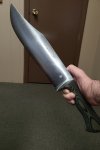- Joined
- May 9, 2002
- Messages
- 12,857
I'm not going to delve too deeply into religious connotation as that's a no-go here. However, I think it is important to at least put the markings on many khukuris into context. I think some folks that may take issue with the markings on a tradional blade are at least owed some background so that they can make an informed decision as to if they even want a traditional khukuri in their mitts.
Many of the markings and attributes are there for traditional reasons. As the kami black smiths are of the untouchable caste, many of them are illiterate. Much of what they know is handed down from master to apprentice over generations. Why is a Cho there? Sharpening stop? Blood drip? Represents the trident of a god? Represents the hoof of the sacred cow? All good guesses that no one knows the answer to.
Even the marks the kamis use have individual meanings beyond what we think they mean. One of the HI kamis at one point used what many of us would see as a swastika as his mark. The fylflot and variations have been used by countless cultures that didn't even overlap for thousands of years meaning many different things. Why? Well, it's easy to draw.
My personal favorite kami is named Kumar. He marks his blades with a six pointed star. I can assure you, his last name is not Goldblatt.
I would not get hung up on the markings if you like a blade.
What I can tell you is that pretty much every shipment of knives coming out of a country like Nepal is going to have had a blessing done on them, so take that as you will. It's a real nefarious one too. Something along the lines of "May this knife serve its owner faithfully. May it never be used in anger." Spooky stuff
Also, the shop will be blessed 2 or more times a year during religious celebrations. Everything will be sprinkled, smoked, or prayed over in order to ensure that business continues to run smoothly. So keep that in mind if it's an issue.
The beat bet to avoid a lot of this would to just get one manufactured in China. Sweatshops are agnostic at best
Many of the markings and attributes are there for traditional reasons. As the kami black smiths are of the untouchable caste, many of them are illiterate. Much of what they know is handed down from master to apprentice over generations. Why is a Cho there? Sharpening stop? Blood drip? Represents the trident of a god? Represents the hoof of the sacred cow? All good guesses that no one knows the answer to.
Even the marks the kamis use have individual meanings beyond what we think they mean. One of the HI kamis at one point used what many of us would see as a swastika as his mark. The fylflot and variations have been used by countless cultures that didn't even overlap for thousands of years meaning many different things. Why? Well, it's easy to draw.
My personal favorite kami is named Kumar. He marks his blades with a six pointed star. I can assure you, his last name is not Goldblatt.
I would not get hung up on the markings if you like a blade.
What I can tell you is that pretty much every shipment of knives coming out of a country like Nepal is going to have had a blessing done on them, so take that as you will. It's a real nefarious one too. Something along the lines of "May this knife serve its owner faithfully. May it never be used in anger." Spooky stuff
Also, the shop will be blessed 2 or more times a year during religious celebrations. Everything will be sprinkled, smoked, or prayed over in order to ensure that business continues to run smoothly. So keep that in mind if it's an issue.
The beat bet to avoid a lot of this would to just get one manufactured in China. Sweatshops are agnostic at best













